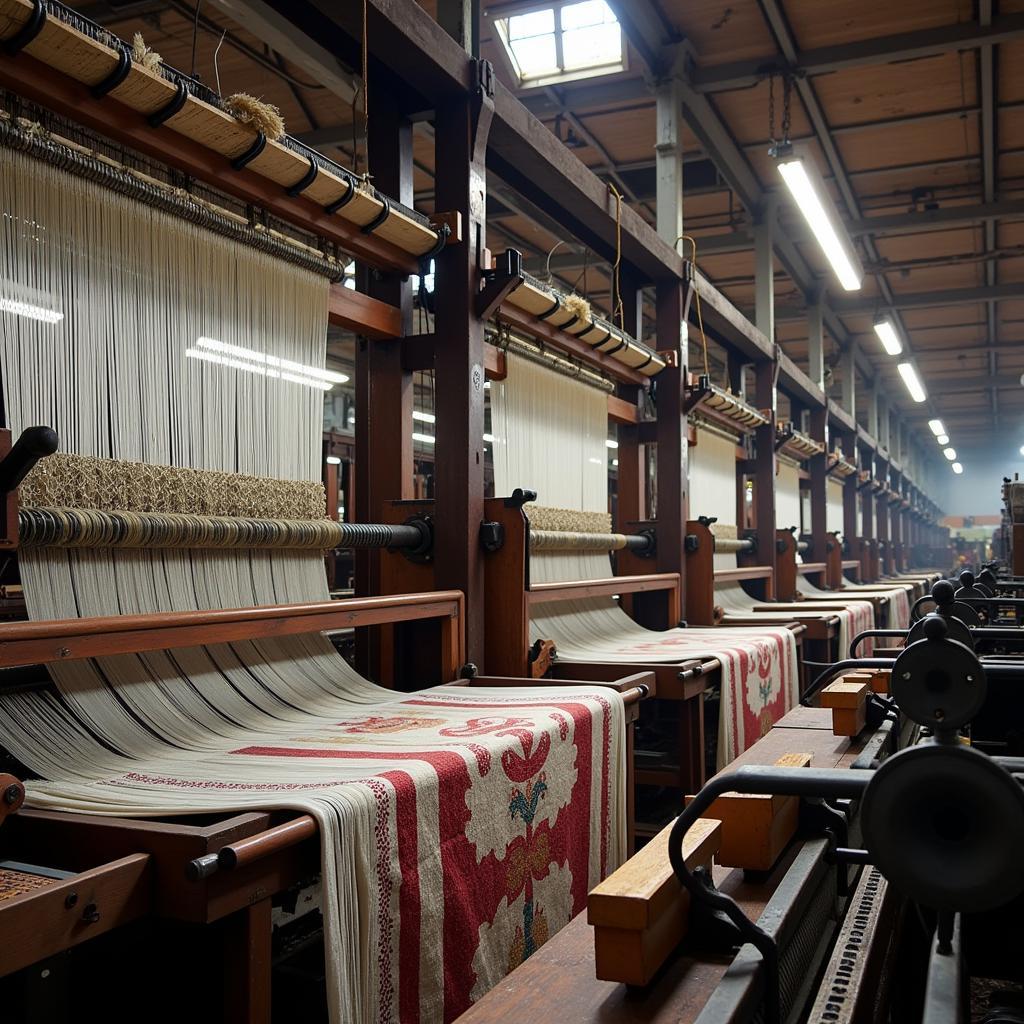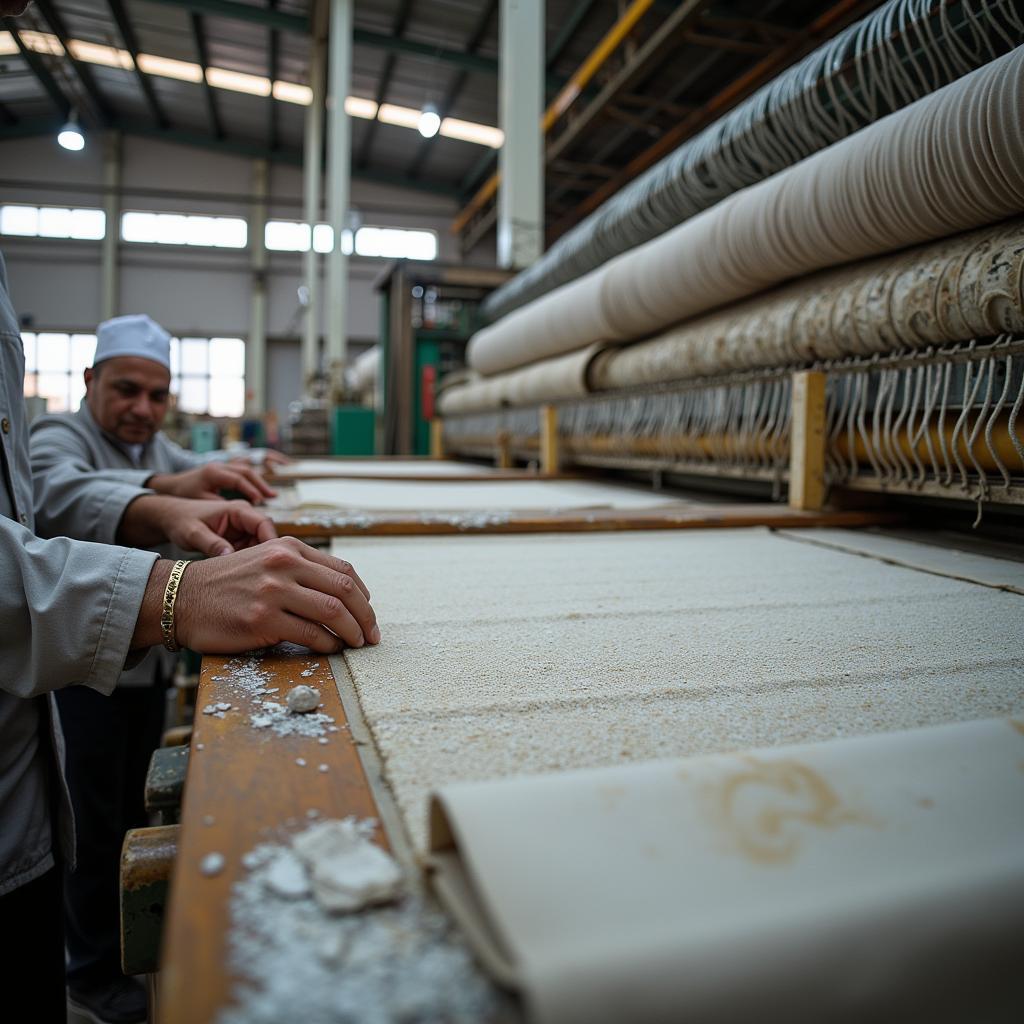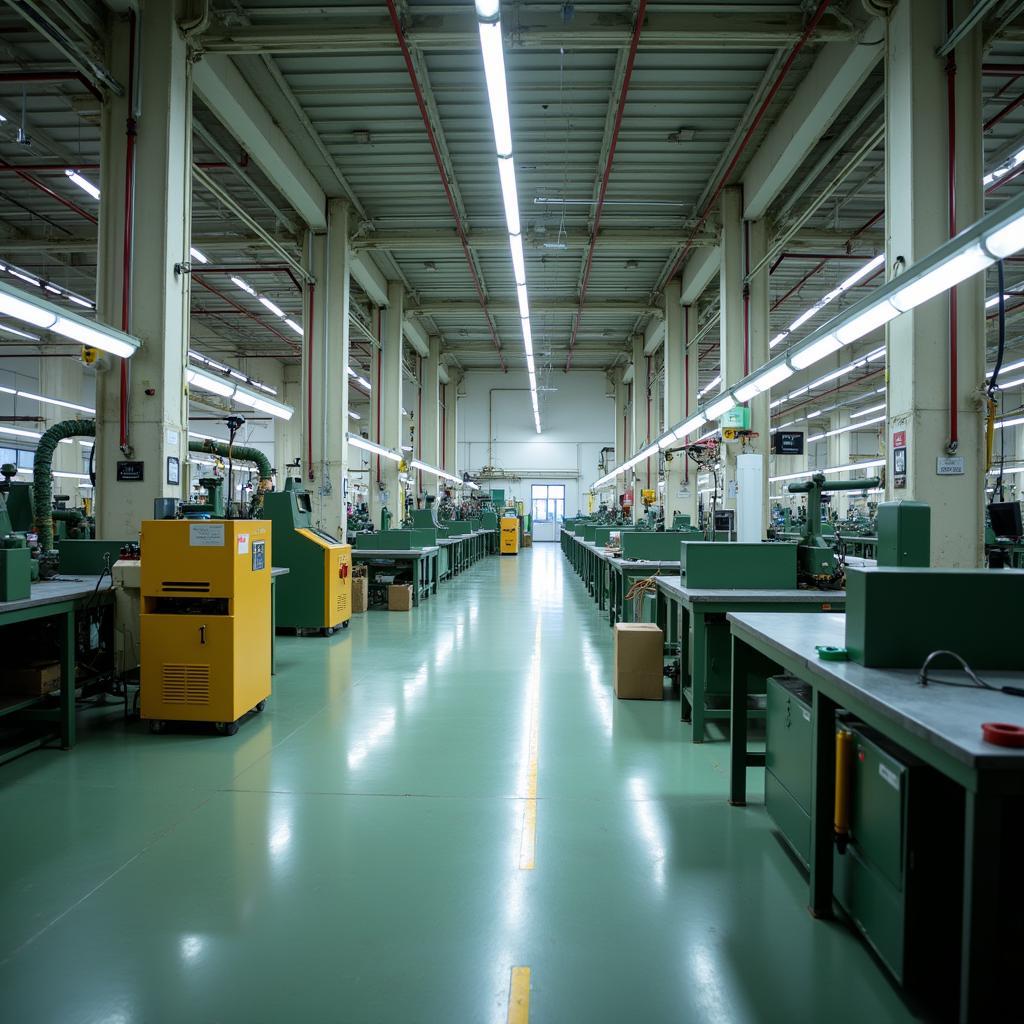Pakistan’s textile industry is a cornerstone of its economy, consistently contributing significantly to the nation’s GDP and export earnings. Known for its production of cotton-based products, the Pakistani textile industry encompasses a wide array of companies, from small-scale operations to large, vertically integrated textile mills. This comprehensive guide delves into the diverse landscape of the textile industry in Pakistan.
Understanding the Scope of Pakistan’s Textile Sector
Pakistan’s textile sector is renowned globally, particularly for its raw cotton production. The industry’s strength lies in its integrated structure, encompassing spinning, weaving, finishing, and garment manufacturing. This comprehensive setup allows for a smooth flow from raw materials to finished goods, catering to both domestic and international markets.
Key Segments of the Pakistani Textile Industry
The textile industry in Pakistan is broadly categorized into several key segments, each contributing to the sector’s overall strength:
-
Spinning: This segment focuses on transforming raw cotton into yarn, a fundamental component in textile production. Pakistan boasts numerous spinning mills equipped with advanced technology to produce high-quality yarn.
-
Weaving: Weaving involves interlacing yarn to create various fabrics. From simple cotton cloth to intricate designs, Pakistani weaving mills cater to diverse needs, including apparel and home furnishings.
 Textile Weaving in Pakistan
Textile Weaving in Pakistan
-
Knitting: Knitting utilizes yarn to create fabrics with interlocked loops, often used in garments like t-shirts and sweaters. The knitting sector in Pakistan has witnessed significant growth, driven by rising demand for comfortable and casual wear.
-
Processing and Finishing: This crucial stage involves treating fabrics to enhance their appearance, texture, and functionality. Processes like dyeing, printing, and finishing contribute significantly to the value addition of textile products.
 Textile Finishing Processes in Pakistan
Textile Finishing Processes in Pakistan
- Garment Manufacturing: This segment focuses on transforming fabrics into finished apparel and clothing accessories. Pakistan’s garment industry is known for its skilled workforce and competitive labor costs, attracting international buyers and fashion brands.
Factors Driving Pakistan’s Textile Industry
Several factors contribute to the prominence of Pakistan’s textile sector:
-
Abundant Raw Material: As a major cotton producer, Pakistan enjoys a natural advantage in textile manufacturing. The easy availability of high-quality cotton provides a solid foundation for the industry.
-
Competitive Labor Costs: Compared to many other textile-producing nations, Pakistan offers competitive labor costs, making its products more attractive in the global market.
-
Strategic Location: Pakistan’s geographical location provides convenient access to key markets in Asia, Europe, and the Middle East, facilitating trade and export activities.
-
Government Support: The Pakistani government recognizes the significance of the textile industry and has implemented various policies and initiatives to support its growth and enhance its global competitiveness.
Challenges Facing the Pakistani Textile Industry
Despite its strengths, the Pakistani textile industry faces certain challenges:
-
Energy Costs: Fluctuating energy prices and occasional shortages pose a challenge to production costs and overall competitiveness.
-
Technological Advancements: Keeping pace with rapid technological advancements in textile manufacturing is crucial for remaining competitive in the global market.
-
Infrastructure Development: Further improvements in infrastructure, particularly in transportation and logistics, are needed to streamline operations and reduce lead times.
The Future of Pakistan’s Textile Sector
The textile industry in Pakistan demonstrates significant potential for continued growth and expansion. Focus on innovation, value addition, and diversification into higher-value textile products will be crucial for sustained success.
-
Investing in Research and Development: Encouraging research and development in textile technology and design will lead to the creation of innovative and high-demand products.
-
Exploring New Markets: Expanding into new and emerging markets will diversify export destinations and reduce reliance on traditional markets.
-
Promoting Sustainable Practices: Adopting sustainable production methods and embracing eco-friendly practices are essential for long-term viability and meeting the evolving demands of environmentally conscious consumers.
 Sustainable Textile Practices in Pakistan
Sustainable Textile Practices in Pakistan
Conclusion
The textile industry remains a vital component of Pakistan’s economic landscape. Addressing the challenges and capitalizing on the opportunities will be instrumental in ensuring the industry’s continued growth and contribution to the nation’s prosperity. By embracing innovation, sustainability, and strategic expansion, the Pakistani textile industry can solidify its position as a global leader in the years to come.
For further assistance and information, please don’t hesitate to contact us. Our dedicated team is available 24/7 to address your queries and provide comprehensive support. You can reach us at:
Phone Number: +923337849799
Email: [email protected]
Address: Dera Ghazi Khan Rd, Rakhni, Barkhan, Balochistan, Pakistan.